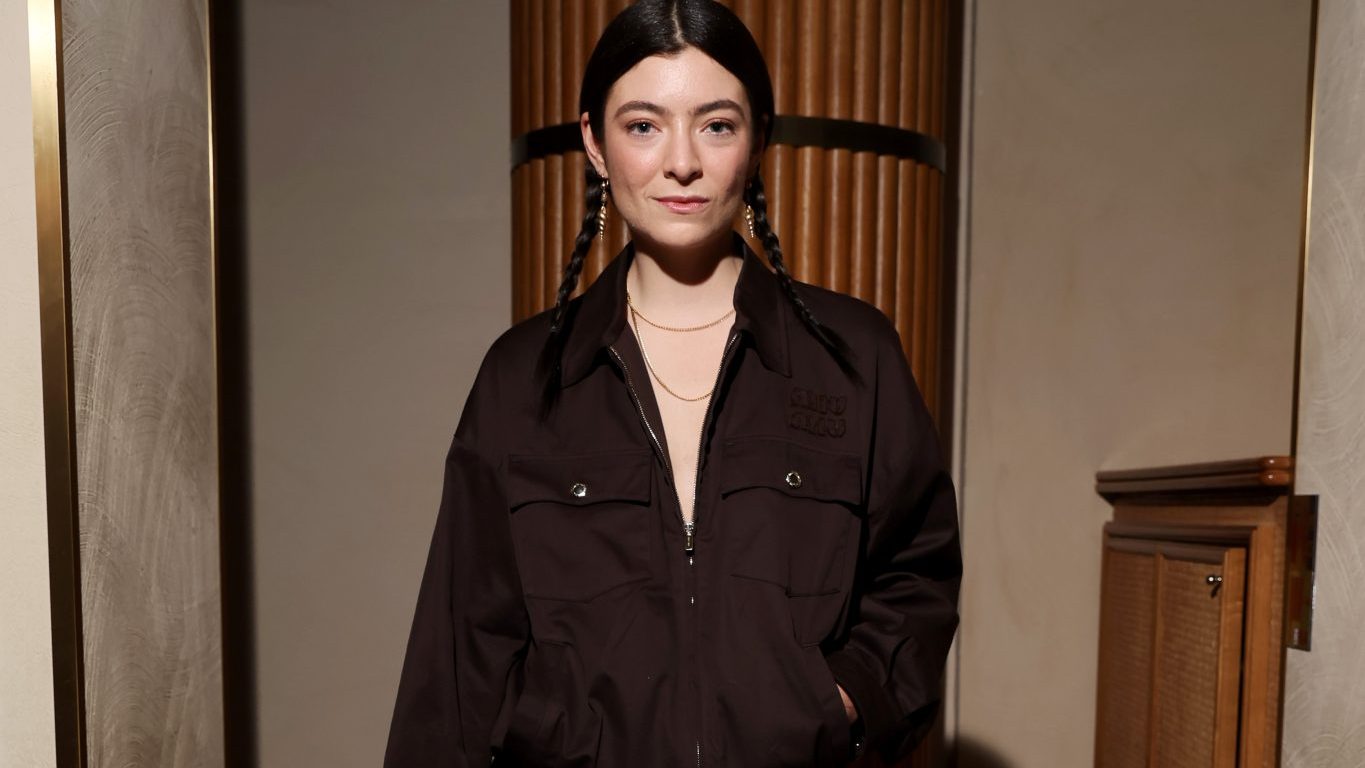Pop visionary Lorde is ready to reveal her rawest self yet.
In April, the New Zealand singer-songwriter dropped “What Was That,” the lead single from her upcoming fourth album, Virgin, out June 27. As fans scrambled to decipher the meaning behind the haunting, introspective track, Lorde sent out a clear message: This new era is about shedding illusions—and maybe even shedding skin.
View this post on Instagram
With Virgin, Lorde isn’t just releasing another album. She’s exploring her femininity, embracing aspects of masculinity, and reflecting on 14 years of being in the public eye. The journey back to herself is messy, beautiful, and unmistakably hers.
A Career Marked by Four-Year Intervals—and Deep Self-Reflection
If you’ve followed Lorde’s career, you might have noticed something oddly symmetrical. Every four years, almost like clockwork, she emerges with a new sound and a new lens.
- 2013: Pure Heroine (age 16)
- 2017: Melodrama (age 21)
- 2021: Solar Power (age 25)
- 2025: Virgin (age 29)
But maybe it’s not just a tidy release schedule. What if each era is more like a personal term in office—four years to process, govern, and make peace with herself before reporting back to the world?
“The Color of the Album Is Clear”
In a move that felt more intimate than industry-standard, Lorde announced Virgin not just via a press release but through a direct email to fans titled “From the desk of Ella Marija Lani Yelich-O’Connor.”
Her words were stark, poetic, and revealing:
“The color of the album is clear. Like bathwater, windows, ice, spit. Full transparency… I was trying to make a document that reflected my femininity: raw, primal, innocent, elegant, openhearted, spiritual, masc.”
That last word—masc—got people talking. But the bigger picture Lorde is painting is one of fluidity, contradiction, and transformation. There’s no tight genre label for Virgin, just as there’s no single definition of femininity or masculinity.
Transparency as a Theme—Literally and Metaphorically
Even the album cover echoes this ethos: it’s an X-ray. The idea of being seen fully, of making visible what’s hidden beneath the surface, carries throughout her creative choices.

Photo: Universal Music
This theme also appears in her recent collaborations, like the song “Kāhore He Manu E” with fellow New Zealander Marlon Williams. Lorde praised Williams for creating music with “X-ray vision,” drawing a clear parallel to her own work on Virgin.
Transparency, for Lorde, is about more than honesty. It’s about the courage to be fully exposed—even if it scares her.
“I’m proud and scared of this album,” she wrote. “There’s nowhere to hide.”
A Remix, a Voicemail, and a Moment of Truth
Fans also got a surprise taste of Lorde’s vulnerability through a remix of Charli XCX’s viral song “Girl, so confusing.” Lorde’s verse felt more like a confession than a collaboration.
“I was at war with my body,” she sang. “So lost in my head.”
The verse touched on identity, self-perception, and the disorienting effects of fame. In her words, “self-defense” can turn into “building a weapon”—a brutal acknowledgment of how even protection can distort who we are.
Reading, Writing, and Reclaiming the Body
In a wide-ranging interview with artist Martine Syms for Document Journal, Lorde discussed the intellectual and emotional groundwork behind Virgin. The time between Solar Power and now involved the end of a seven-year relationship, rethinking her gender expression, and—perhaps most profoundly—reclaiming her relationship with her body.
“I read a lot about the body in different ways,” she told Syms. “I read a lot of queer writers. I just read all of Annie Ernaux.”
One anecdote stood out: a young girl describing beauty as being “your most self.” That stuck with Lorde.
“That’s been my mission,” she said. “But it came out of many years of putting something on and being like, ‘What am I doing wearing this?’”
The artist who once sang “We live in cities you’ll never see on screen” is now zooming inward, focusing less on myth and more on identity, embodiment, and healing.
“What Was That”: A Song Born From Turbulence
The single “What Was That” was written in the midst of what Lorde called “a period of great turbulence.”
“I was becoming single, facing my body stuff head-on, and starting to feel my gender broadening a little bit,” she said. “I just kept thinking, ‘What was all of that?’ Whether it was my relationship, the pandemic, or sacrificing my body to my career.”
In a rare move, she improvised the song in the studio—walking around with a mic and speaking her truth, unscripted.
A New Chapter Begins June 27
Virgin arrives June 27, and it’s already available for pre-save and pre-order on all major streaming platforms and music retailers. Whether you’re a longtime fan or just tuning in, Lorde’s latest body of work promises something deeper than just new tracks—it’s a reckoning, a revelation, and a rebirth.
If each Lorde album has marked a rite of passage, Virgin might just be her most unfiltered, unapologetic chapter yet.







